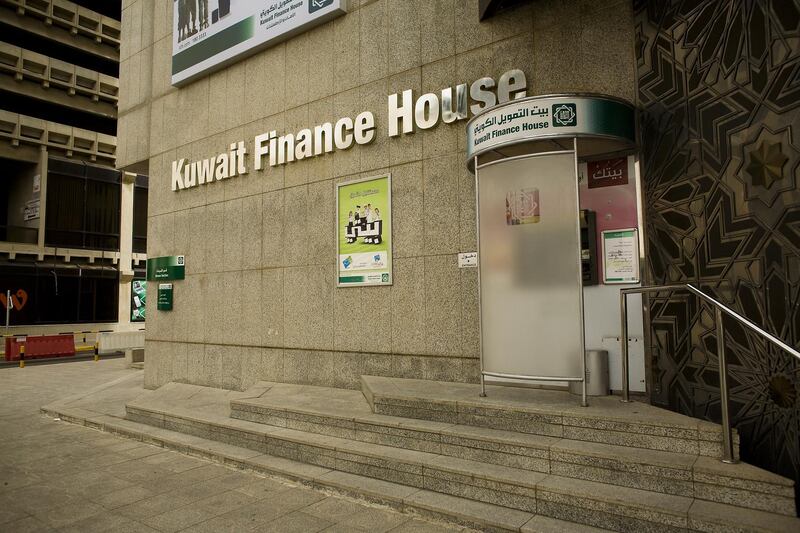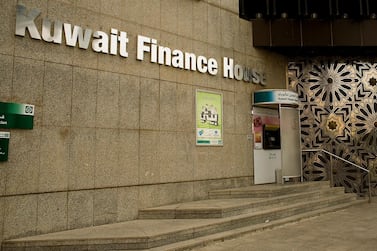Kuwait Finance House reported a 17.4 per cent rise in its first quarter net profit, beating analysts’ estimates as provision for bad loans fell and operating income climbed.
Net income for the three months to the end of March rose to 51.6 million Kuwaiti dinars (Dh622.8m) from a year-earlier, the lender said in a statement to Boursa Kuwait, where its shares are traded. Its quarterly income beat the average profit estimate of 49.1m dinars in Bloomberg analysts’ survey.
Total operating profit for the bank rose 7.1 per cent year-on-year to 118.1m dinars, it added.
The increase in the net profit is “mainly due to the rise in operating income ... and the decrease in the provisions and impairments by 15.9 per cent", the bank said in the bourse filing.
KFH, the biggest Sharia-compliant lender in the oil-rich Gulf state, also reported a 4.1 per cent rise in its operating revenues to 196.8m dinars, while its assets grew 5.9 per cent from a year earlier to 18.4 billion dinars.
The lender, which holds a significant share of the Kuwaiti banking market, is in the process of taking over its Bahraini competitor, Ahli United Bank.
KFH in January received a “tentative” approval from AUB on the share swap ratio to complete the deal. KFH’s board of directors at the same time approved the exchange ratio of 2.326 shares of AUB for each share of KFH, it said in a statement at the time.
HSBC and Credit Suisse are acting as advisors who evaluated the proposed exchange ratio for the two lenders. The ratio is subject to due diligence, which will start once regulatory approval from the central banks of Bahrain and Kuwait is received, it added.
KFH revived talks with AUB in July of last year, which had previously stalled over a difference in valuation between the two financial institutions, according to Bloomberg.
Gulf banks are increasingly eyeing acquisitions and mergers as they seek to cut costs and create bigger entities capable of competing regionally and boosting profitability. Other lenders are offloading non-core assets to achieve operational efficiencies to better face tougher market conditions.
AUB and its Kuwaiti subsidiary are also in initial talks to sell their joint shareholding in Kuwait and Middle East Financial Investment Company to Warba Bank, the Bahraini lender said earlier this year.
AUB did not disclose the size of its joint shareholding in the investment company, the value of the stake or when the deal is expected to be concluded.








